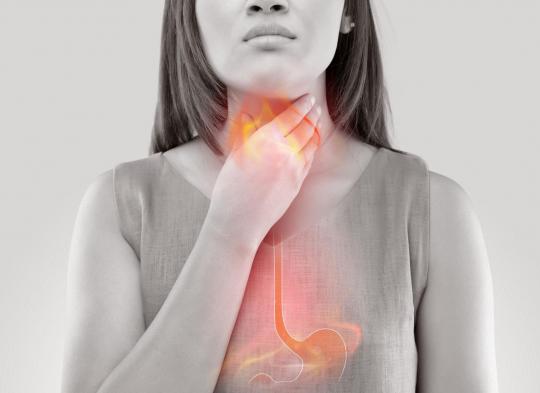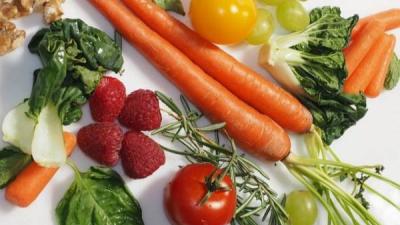Gastro-oesophageal reflux disease (GORD) is a common condition where stomach acid leaks out of the stomach into the oesophagus (gullet) causing troublesome symptoms and complications.
GORD main triggers are:the lower oesophageal sphincter (LOS) muscle not working properly, gastric emptying disorder, obesity, pregnancy, excessively large meals, coffee, alcohol, some medications e.g. contraceptives or antispasmodics. Typical symptoms: heartburn, burping, stomach acid coming back up into the throat and mouth (known as regurgitation). The pain is usually worse when bending over or lying down, especially after eating (a large or fatty meal). Other, less common symptoms include: hoarseness (especially in the morning, caused by vocal cords irritation by regurgitation of acid), persisting dry cough, wheezing, non-cardiac chest pain (not to be confused with cardiac chest pain, caused usually by coronary heart disease).
Dysphagia (difficulty swallowing), painful swallowing, significant weight loss, oesophageal bleeding, tarry-looking stool are the symptoms that require immediate consultation with your doctor. Complications include: inflammation, oesophagus narrowing or ulceration as well as tumours.
The primary diagnostic examination in oesophageal diseases is gastroscopy. Treatment is based on proton-pump inhibitors (PPIs), H2-receptor antagonist (H2RA) and drugs improving gastrointestinal tract motility (Prokinetics). Also the diet plays a significant role. Heavy, fatty and spicy foods, coffee and alcohol should be avoided. In some cases the amount of served food should be reduced. Obese people should also work on losing weight.
All articles posted on the website are the property of Poland Medical. Copying or distribution in whole or in part in any form or by any means without the administrator’s consent is prohibited, and will be treated as illegal infringement of copyrights.



